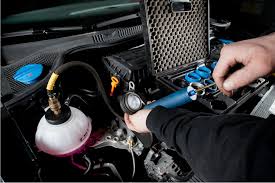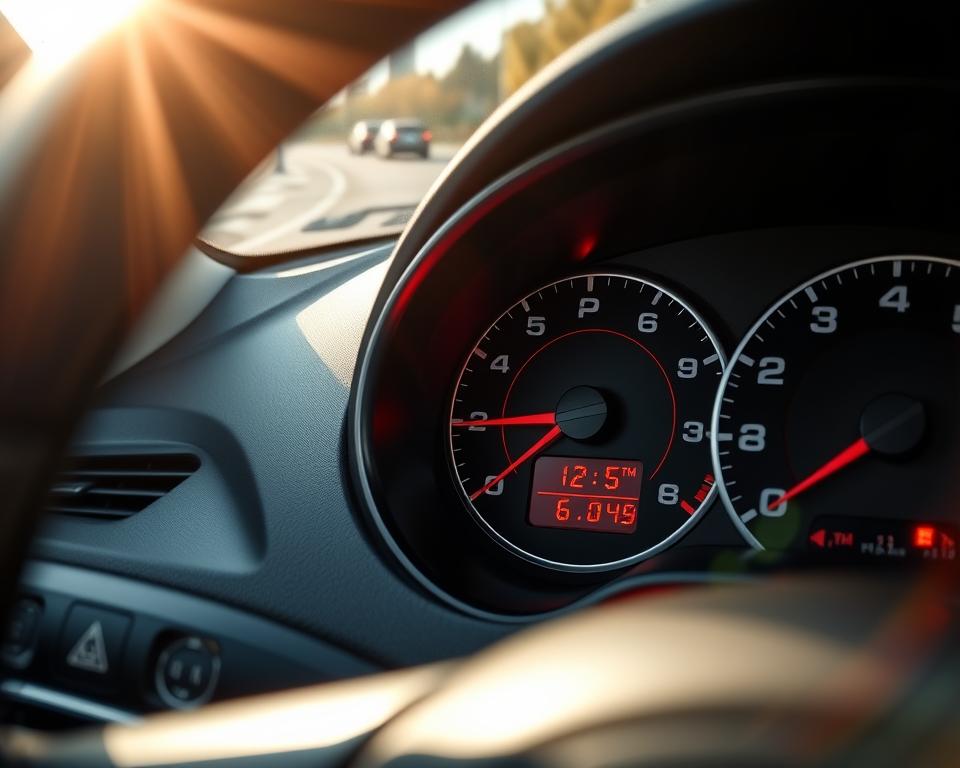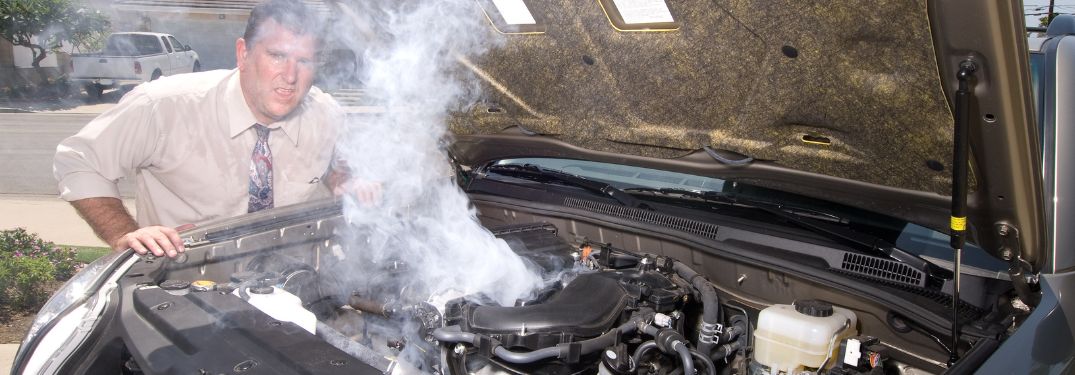When temperatures rise, so does the risk of your car engine overheating. Without proper care, excessive heat can lead to serious engine damage and costly repairs. At Kunes, we’re here to help you keep your engine cool and your car running smoothly with these expert tips for engine overheating prevention.
Understanding Engine Overheating
What is Engine Overheating?
Engine overheating occurs when the engine’s cooling system fails to regulate the engine’s temperature, causing it to rise above a safe level. This can lead to serious damage, including warping of the cylinder head, cracking of the engine block, and damage to the engine’s bearings and pistons. When the cooling system is compromised—whether due to leaks, a faulty thermostat, or a clogged radiator—the engine cannot dissipate heat effectively, resulting in overheating. Understanding these risks underscores the importance of maintaining your engine’s cooling system to prevent costly repairs and ensure your vehicle runs smoothly.
Why Engines Overheat in Hot Weather
Your engine generates a tremendous amount of heat while running, and it relies on a well-maintained cooling system to keep that temperature under control. Common causes of engine overheating include:
- Low or old coolant
- Radiator leaks or clogs
- Malfunctioning water pump
- Broken cooling fan
- Faulty thermostat
- Cracked hoses or loose belts
Issues within the engine compartment, such as cooling system leaks or faulty components, can prevent proper heat regulation, leading to overheating.
Ignoring the signs can lead to warped engine components, blown head gaskets, and even complete engine failure.
Common Causes of Engine Overheating
Cooling System Issues
Cooling system issues are a primary cause of engine overheating. Here are some common problems:
- Cooling System Leaks: Leaks in the cooling system can cause the coolant level to drop, leading to insufficient cooling and engine overheating. Regularly check for puddles under your car or a sweet smell, which can indicate a coolant leak.
- Faulty Thermostats: A malfunctioning thermostat can prevent the coolant from circulating properly, causing the engine to overheat. If your engine heats up quickly or runs hot, the thermostat might be stuck closed.
- Clogged Radiators: A clogged radiator can obstruct the flow of coolant, preventing the system from dissipating heat effectively. Regular radiator maintenance can help avoid this issue.
- Low Coolant Levels: Without enough coolant, the engine cannot absorb and dissipate heat efficiently, leading to overheating. Always ensure your coolant is at the proper level and mixed correctly.
Engine-Related Causes
Engine-related issues can also lead to overheating:
- Engine Block Issues: Cracks or warping in the engine block can disrupt the engine’s ability to manage heat, leading to overheating. These issues often require professional inspection and repair.
- Cylinder Head Issues: Warping or cracking of the cylinder head can compromise the engine’s cooling efficiency, causing it to overheat. This is often a result of prolonged overheating and can lead to significant engine damage.
- Piston Issues: Problems with the pistons, such as scoring or seizing, can increase friction and heat within the engine, contributing to overheating.
- Bearing Issues: Worn or damaged bearings can cause excessive friction and heat, leading to engine overheating. Regular maintenance can help identify and address these issues early.
External Factors
External factors can also contribute to engine overheating:
- High Temperatures: Extremely hot weather can strain your engine’s cooling system, especially if it’s not in top condition. Ensure your cooling system is well-maintained to handle high temperatures.
- Heavy Loads: Carrying heavy loads can make your engine work harder, generating more heat and increasing the risk of overheating. Be mindful of your vehicle’s load capacity.
- Towing: Towing adds extra strain on your engine, causing it to generate more heat. Ensure your cooling system is up to the task if you plan to tow heavy loads.
- Air Conditioning: Using the air conditioning puts additional load on the engine, which can lead to increased heat generation and potential overheating. If you notice your engine temperature rising, consider turning off the AC to reduce the load.
Addressing engine overheating issues promptly is crucial to prevent further damage. Regular maintenance, such as checking coolant levels and inspecting the cooling system, can help keep your engine running smoothly. If you notice signs of overheating, such as a rising temperature gauge or steam from the hood, pull over safely and turn off the engine. Avoid driving further until the issue is diagnosed and resolved to prevent severe engine damage.

Top Tips to Prevent Engine Overheating
1. Check Your Coolant Regularly
Coolant is your engine’s first line of defense against overheating. Make sure your coolant is clean, topped off, and mixed correctly (usually a 50/50 antifreeze and water blend). Ask our team about the best coolant for overheating protection.
2. Inspect the Radiator and Hoses in the Engine's Cooling System
Look for leaks, corrosion, or wear in your radiator and hoses. A cooling system leak can lead to a drop in coolant levels, causing the engine to overheat. Our technicians provide radiator maintenance tips and perform full inspections to make sure nothing’s blocked or broken.
3. Test Your Thermostat
Your car’s thermostat controls coolant flow. In summer, a stuck-closed thermostat is a common issue. If your engine heats up quickly or runs hot, this could be the culprit.
Always keep an eye on the temperature warning light, as it can alert you to potential overheating issues.
4. Keep an Eye on Engine Temperature
Watch your dashboard gauge to monitor engine temperatures. If it starts to climb, pull over and turn off the engine. Running it too hot for too long risks permanent damage.
5. Turn Off the AC if You Notice Overheating
If your car starts to overheat in traffic, shut off the AC and turn on the heat to draw hot air away from the engine. It’s not comfortable—but it can help reduce the temperature temporarily.
Maintaining proper air and coolant flow is crucial to prevent engine overheating, especially in hot weather.
What to Do If Your Car Overheats
- Pull over safely and turn off the engine.
- Wait before opening the hood—the steam can be dangerous.
- Call for help if you’re unsure about the cause.
- Avoid driving further until your car cools and the issue is diagnosed. If the issue persists, consider calling a tow truck to transport your vehicle to a repair shop.
Signs Your Car Is Overheating
- Temperature gauge is in the red
- Steam from under the hood
- Sweet or burning smell
- Engine knocking or reduced power
- Coolant warning light is on
Recognizing these signs early can help you avoid engine damage from heat and save you from a major repair bill. Recognizing these signs early can help you avoid the dangers of an overheated engine.

Expert Engine Cooling Advice from Kunes
At Kunes, our certified technicians are trained in engine cooling system tips and solutions. From routine coolant system checks to full engine temperature management, we offer services that help prevent breakdowns and keep your vehicle performing its best—even in the hottest conditions. Regularly checking and changing your engine oil is also crucial to prevent overheating and ensure optimal performance.
Our Kunes engine repair services include:
- Coolant flushes and refills
- Thermostat testing and replacement
- Radiator diagnostics and repair
- Water pump service
- Cooling fan and belt inspection
- Full hot weather car maintenance
Stay Cool with Summer Engine Care from Kunes
Don’t let the heat put your engine at risk. With proper care and professional support, you can protect your engine in hot weather and drive confidently all season long.
Schedule your engine cooling system check today with your local Kunes Auto Body or Kunes Service center.
Kunes – Expert Engine Care. Trusted Repairs. Summer-Ready Performance.

